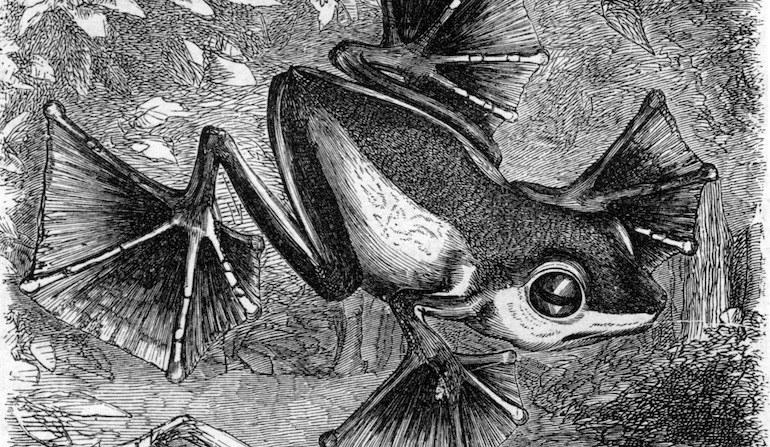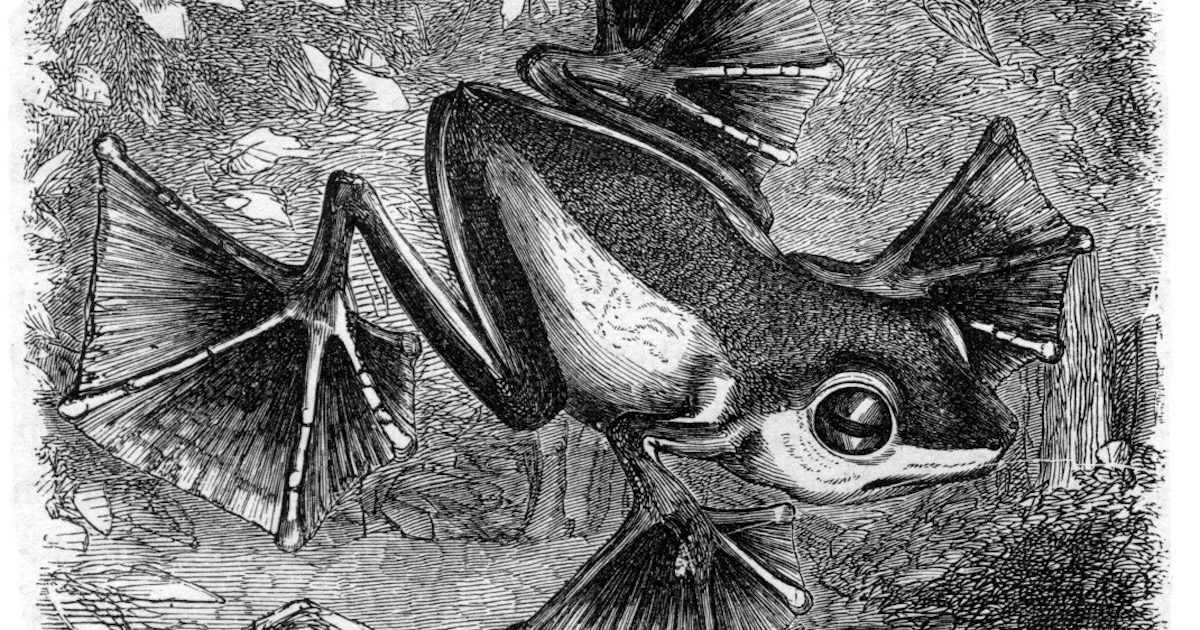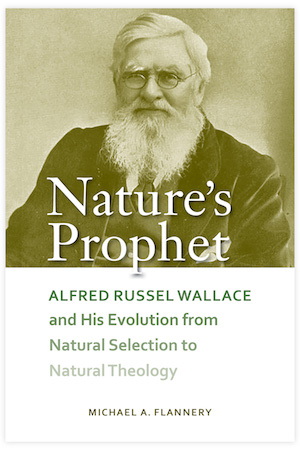 Evolution
Evolution
 Intelligent Design
Intelligent Design
Alfred Russel Wallace’s Greatest Journey


Editor’s note: We are delighted to welcome the new book Nature’s Prophet by science historian Michael Flannery with a series of excerpts. Professor Flannery is a Fellow with Discovery Institute’s Center for Science & Culture. Nature’s Prophet is currently on sale here for $26, a substantial saving from the list price of $44.95.
As noted already in earlier posts (here and here), Alfred Russel Wallace took a journey Darwin could not follow. He went from natural selection to natural theology, and it is this journey that my book seeks to retrace. Wallace’s heresy is not simply rooted in his spiritualism, socialism, or radical feminism alone — although each in its own way played a part and each was a logical outgrowth of Wallace’s mature evolutionary theory. His heresy was that his ideas when taken together ultimately smacked of creationism. It did not look like William Paley’s special “magic wand” brand of interventionist creationism, nor was it festooned with images of Nature’s perfection with happy bees flitting about idyllic gardens; it was rooted within aspects of the natural world and in certain “contrivances” of nature suggestive of an artificer on a cosmic scale. While not dependent upon Christian theology, neither did it negate it.
Intelligent Evolution
 Wallace’s formulation of evolution was quite incompatible with Darwin’s. Wallace’s theory might be called intelligent evolution, a theory of common descent based upon natural selection strictly bounded by the principle of utility (that is, the idea that no organ, attribute, or morphological feature of an organism will be developed and retained unless it affords it a survival advantage) within a larger teleological and theistic context. This would appear to be the basic reason for Wallace’s fall from grace, a fall experienced among his colleagues in his own day and carried forward to today. As such Wallace’s intelligent evolution forms a central leitmotif in my book.
Wallace’s formulation of evolution was quite incompatible with Darwin’s. Wallace’s theory might be called intelligent evolution, a theory of common descent based upon natural selection strictly bounded by the principle of utility (that is, the idea that no organ, attribute, or morphological feature of an organism will be developed and retained unless it affords it a survival advantage) within a larger teleological and theistic context. This would appear to be the basic reason for Wallace’s fall from grace, a fall experienced among his colleagues in his own day and carried forward to today. As such Wallace’s intelligent evolution forms a central leitmotif in my book.
If Darwinism were merely “just another” scientific theory, none of this would have occurred. Wallace would likely have received one of the highest academic posts in the land and been carried triumphantly on the shoulders of adoring students on campus grounds (as indeed the students at Edinburgh University did when penicillin’s discoverer, Alexander Fleming, was appointed Vice-Chancellor of the university in 1952). There were no such encomiums for Wallace. Exactly why has to do with the nature of Darwinian evolution itself. Daniel Dennett — himself an enthusiastic Darwinist — bespoke its essence in calling it a “universal acid” that is “so corrosive that it will eat through anything!” That, according to Dennett, is Darwin’s “dangerous idea,” an idea that cuts through and eats away just about every traditional concept and leaves in its wake a new and revolutionized world that has been irrevocably transformed. Far from fearing such an acid, Dennett invites us into this Deus sive Natura; a Nature of the numinous with the Tree of Life in all its resplendent glory. “I could not pray to it,” concludes Dennett, “but I can stand in affirmation of its magnificence. This world is sacred.”
Others are less convinced and would stand Dennett’s argument on its head. R.H. Barfield (1895-1977) believed that Darwinism sought nothing less than absolute hegemony in the modern world:
To justify this claim it must show that biology — or the whole field of living things — can be brought under its sway. That is to say it must be able to account for the origin of life and evolution subsequent to this origin, up to and including man himself, with all his special attributes. Failure in any part of this vast field will throw doubt on the whole of the realms over which it has established itself with such marked success, and this is the reason why Darwinism has been so welcomed by scientists and the world in general.
In fact in the attempt to eliminate the idea of the “creation” in its religious sense — a word that nineteenth-century materialism could not stomach, and that today has become almost a “dirty” word in the collective psyche of our age — wishful thinking pounced on Darwin’s Origin of Species as a veritable windfall; it became, we might almost say, the bible of the negation of God or spirit in nature.
This was Wallace’s “crime” — he became a creationist. So intimately associated with aspects of the very theory that sought to deny it, Wallace developed his own unique version of creationist evolution. Eschewing the natural theology of William Paley (1743-1805) and its overt Christian doctrine, Wallace crafted a refurbished natural theology, at once progressive and teleological. Wallace’s formulations were broad and wide-ranging, so much so that it could accommodate any of the Abrahamic religions, though Wallace was not himself a religious man. It was Wallace’s greatest journey, an intellectual odyssey that began among the Indians of South America and the natives of Maritime Southeast Asia and concluded after more than ninety years on the planet he found so fascinating.
The Route Less Traveled
In the final analysis, this may tell us more about that nature of our science than about Wallace. Sherrie Lyons has offered a historical analysis of those Victorians who lived on the margins of science. For her, men (Wallace among them) who took the route less traveled into those uncharted waters known as spiritualism and teleology may have attempted to understand the deep meanings of human life and existence, but such inquiry, according to her, “is not a fruitful one for furthering the advance of knowledge.”
But this is more of a philosophical position than a factual assertion. It might be argued that this is a deliberate misunderstanding of Lyons’s meaning. If what is meant by fruitful are those theories that produce new investigation and hypotheses, then her preemptive exclusion of Wallace’s — and others — interests in these areas is precisely the point. Why must spiritualistic and/or teleological hypotheses be ruled out of court as fruitful? For now, it is worth asking if intellectual advance must be measured solely by naturalistic assumptions? Are fruitful ideas simply those that conform best to the reigning paradigms? We should note Arthur Koestler’s warning, issued even before Thomas Kuhn’s, that science is neither cumulative nor linear: “The philosophy of nature evolved by occasional leaps and bounds alternating with delusional pursuits, culs-de-sac, regressions, periods of blindness, and amnesia. The great discoveries which determined its course were sometimes the unexpected by-products of a chase after quite different hares. At other times, the process of discovery consisted merely in the cleaning away of the rubbish that blocked the path, or in the rearranging of existing items of knowledge in a different pattern. The mad clockwork of epicycles was kept going for two thousand years; and Europe knew less geometry in the fifteenth century than in Archimedes’ time.”
This is not to say that heterodoxy has its own privilege; it does not. But teleology, the nature of human personality, qualia and consciousness, even evolution and evolutionary progress itself — all issues central to Wallace — are not settled questions even today. As one reviewer replied to Lyons, one cannot propose to take “Victorian science on its own terms” on the one hand and at the same time pass “judgement on both her historical actors and the historical record.” The error here is not only found in the presentism about what counts as science and scientific inquiry. It is also rooted in the premature assumption that science has settled more questions than it really has. To fairly assess Wallace we must abandon such preconceptions.
Image: A “flying frog,” illustration from The Malay Archipelago, by Alfred Russel Wallace, via Wikimedia Commons.
